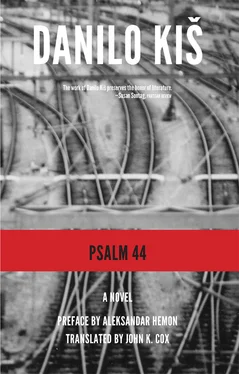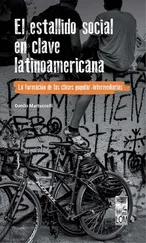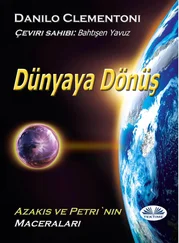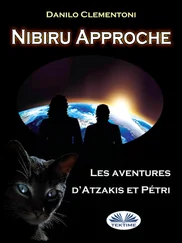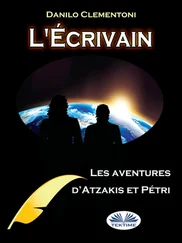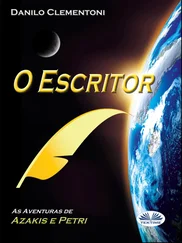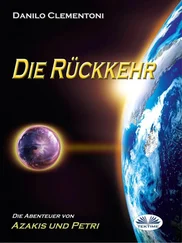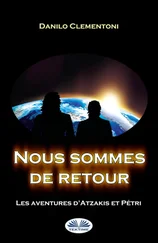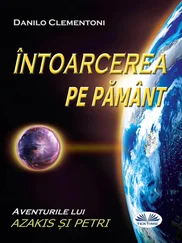Jakob lay for the third month in an American hospital several kilometers outside Berlin. Along with general exhaustion and stomach problems, he still had an open fistula on the outside of his left knee. He had sustained that injury while escaping from the camp in Oranienburg. That was in November. Two days before the total evacuation of the camp. He still couldn’t eat and he often surreptitiously swapped chocolate for cigarettes. He was smoking a great deal and taking sleeping pills. During the day he stared at the ceiling and quarreled with the patients who shouted back and forth to each other and played préférence .
“ You’re a doctor ?” the director asked him one day, in English. That was in February. At four in the afternoon, as Dr. Leo was making the rounds of his patients, Jakob hadn’t even noticed the entrance of the examiners from the medical board. He lay there sprawled across his iron bed as on a catafalque. He stared at the high white ceiling. One of his hands hung down next to the bed like a dead appendage. From time to time he would bring a cigarette up to his lips, nothing more. Then he’d close his eyes for a moment.
Dr. Leo repeated his question.
“Yes,” Jakob said absentmindedly, without taking the cigarette out of his mouth. His eyes, fogged over with the powerful doses of morphine, were still contemplating the peeling plaster on the ceiling.
“Put out that cigarette,” Dr. Leo said in a strict tone. “Our fellow doctor should see to it that he doesn’t require further warnings about such things.”
Jakob stubbed out his cigarette on the floor, barely moving his hand.
“Where’d you get the cigarettes?”
Jakob gave no reply.
“Where’d you get the cigarettes?” the doctor repeated.
“Screw the cigarettes,” he said. “Leave me alone. I’ve been getting them however I can.”
“I explicitly forbade you to smoke,” Dr. Leo said.
Jakob fell silent once more. Nervously he closed his eyes. Then he said:
“Why this?”
“What?” the doctor asked.
“All of this,” he said. “All this business.”
That was in February.
By the next month his condition had only marginally improved. The fistula had ceased festering, but his nerves were even worse. He stopped arguing with the patients. It cost Dr. Leo considerable effort to get so much as a word out of him. He still smoked a lot, but cigarettes were harder to come by now. He wasn’t able to put much effort into it. And now he was covering his head and face completely. He couldn’t stand sunlight. He demanded that the blinds not be raised during the day, but they didn’t listen to him. That’s when he started wrapping his blanket around his head. Only at night did he stare at the ceiling. In the dark.
At the end of March, Dr. Leo advised him to start showing some concern for his long-term future. He couldn’t stay in the hospital forever. As soon as his wound healed, he’d have to move on.
“I like it here,” he said. “I can stop smoking,” he said. “If you insist.”
“What I’m insisting is that you begin thinking,” Dr. Leo said. “That you take care of yourself. Why not write up your experiences, for example? I mean with Nazi medical ethics. Or something along those lines. . You surely have some valuable, and by that I mean authentic, experiences to share.”
Jakob waved him off with a barely perceptible movement of his hand.
“Shall I bring you some writing supplies?”
“No,” Jakob said. “Why?”
“You have to find a project. Whatever it is. Play chess at least. Or cards. Anything at all,” Dr. Leo said.
No answer came. He didn’t even gesture with his hand.
Then Dr. Leo said:
“Do you have anyone? Parents or wife? ”
“No one,” he said. “So much the better.”
“Shall I have them issue you a passport?” Dr. Leo asked. “What are your thoughts about that? So you can head for Palestine? Or America?”
“No,” he said. “Not Palestine. . I’ve had enough of all that.”
“For the US, then,” Dr. Leo said calmly. “There’s none of that there.”
“None of what?”
“What you fear: scars. No one will hassle you to write your memoirs,” Dr. Leo replied with a smile. “America is where scars get lost in the crowd. Do you understand? At least there are women there who are still in one piece. And children, of course.”
“All right,” Jakob said. He turned toward the doctor: “I agree,” he went on listlessly. “Scrounge up a passport for me, if it means so much to you.”
Dr. Leo promised that it would be ready as early as the middle of April. At the latest by May. Jakob hardly grew any more up-beat. He would take up residence in some quiet spot in Canada. Anywhere. The only thing he cared about was crossing the ocean. That, perhaps, would be his purgatory.
On the day, the last day of March, when he received a letter from Marija and Jan, he was lying in his bed next to the open window. His head was propped up slightly on his pillow. He was watching the flickering of the sun across the white varnish on the opposite wall. He was imagining a large ship gliding across the Atlantic in calm, sunny weather. It was about four o’clock in the afternoon, just before the doctors checked in on their patients. Before they came, the mail was handed out. It was going on right now. All the patients, including those on crutches and the ones in wheelchairs, were in the sun-filled lobby of the building where the mail was usually distributed. Only one other person stayed behind in the ward with Jakob: a boy who had recently had an amputation and been delivered to the ward the night before.
“There’s some mail for you,” Danijel said, laughing and then straining as he pushed against the narrow planks on the door to make his wheelchair move. One of his legs had been removed — a victim of the Institute of Scientific Research. His voice was unnaturally scratchy and his hair had fallen out. Jakob recognized the symptoms of forced sterilization by means of the “special method.”
“They’ve already called your name three times,” the boy said, rowing with broad strokes across the smooth parquet floor. “I assumed you were asleep. . Otherwise you would have definitely heard them.”
Jakob started, and then reached out apathetically for the letter. He quickly scanned the envelope.
“Danijel,” Jakob said as he grabbed the boy by the upper arm. Danijel still had a trace of a smile on his face, and he was staring at Jakob. “Have you ever watched someone be resurrected?”
Now Danijel’s little smile was mournful.
“No? Watch me, then. . First a person starts to cry, as you can see. Then he drops his letter. It’s like when someone has gone hungry for a very long time. You can’t gorge yourself right away. Then one lights a cigarette,” Jakob said, and he offered the pack to Danijel. “There you have it. This, this is what it’s like. You see. . It’ll be you one of these days.”
Dr. Leo too expressed his surprise.
“How are you feeling, compatriot? You’re an American now. . Aren’t you? ”
“Excellent, Doctor,” Jakob said. “I’m imagining my trip across the ocean. . But, of course, I’m not alone. . Do you know what I mean?”
“Bravo,” Dr. Leo said. “But you’ve forgotten again that you aren’t allowed to smoke.”
“Indeed,” Jakob said. “Forgive me, but I thought that, on the deck of a transatlantic liner, smoking was permitted.” Dr. Leo smiled contentedly.
That same day, in the early evening, Jakob left his room unobserved. Most of the patients were asleep. Out on the terrace he ran into no one but Danijel.
“Farewell, Danijel,” Jakob said in a low voice. They shook hands.
Читать дальше
